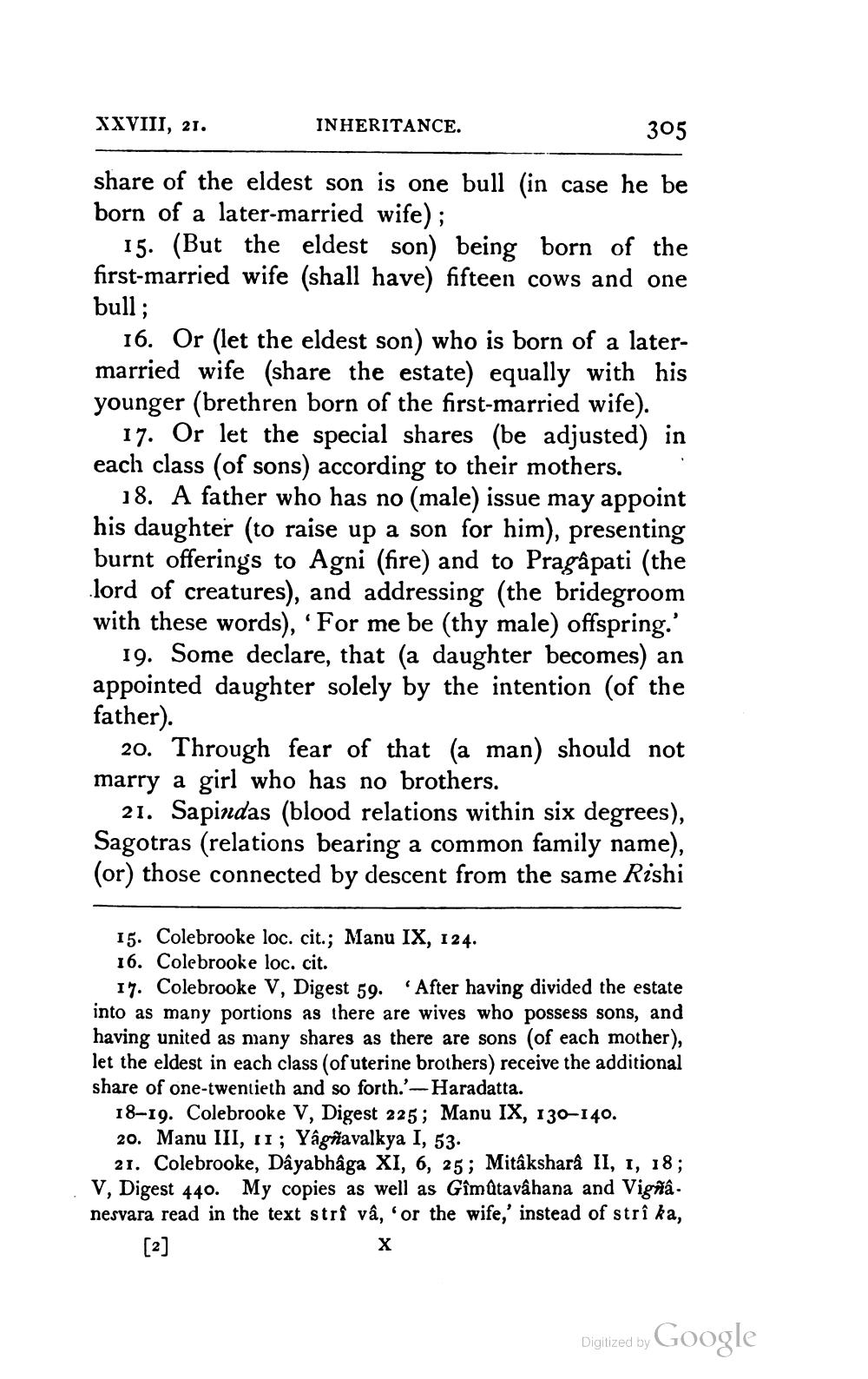________________
XXVIII, 21.
INHERITANCE.
305
share of the eldest son is one bull (in case he be born of a later-married wife);
15. (But the eldest son) being born of the first-married wife (shall have) fifteen cows and one bull;
16. Or (let the eldest son) who is born of a latermarried wife (share the estate) equally with his younger (brethren born of the first-married wife).
17. Or let the special shares (be adjusted) in each class (of sons) according to their mothers.
18. A father who has no (male) issue may appoint his daughter (to raise up a son for him), presenting burnt offerings to Agni (fire) and to Pragâpati (the lord of creatures), and addressing (the bridegroom with these words), 'For me be (thy male) offspring.'
19. Some declare, that (a daughter becomes) an appointed daughter solely by the intention (of the father).
20. Through fear of that (a man) should not marry a girl who has no brothers.
21. Sapindas (blood relations within six degrees), Sagotras (relations bearing a common family name), (or) those connected by descent from the same Rishi
15. Colebrooke loc. cit.; Manu IX, 124.
16. Colebrooke loc. cit.
17. Colebrooke V, Digest 59. 'After having divided the estate into as many portions as there are wives who possess sons, and having united as many shares as there are sons (of each mother), let the eldest in each class (of uterine brothers) receive the additional share of one-twentieth and so forth.'-Haradatta.
18-19. Colebrooke V, Digest 225; Manu IX, 130-140. 20. Manu III, 11; Yâgñavalkya I, 53.
21. Colebrooke, Dâyabhâga XI, 6, 25; Mitâksharâ II, 1, 18; V, Digest 440. My copies as well as Gîmûtavâhana and Vigñânesvara read in the text strî vâ, 'or the wife,' instead of strî ka,
[2]
X
Google
Digitized by




